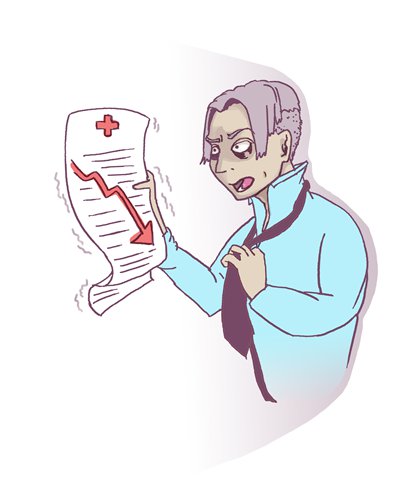METRO SHANGHAI / TWOCENTS
Chinese white-collar workers should pay attention to health

Illustration: Lu Ting/GT
Mind what you have for dinner, as we are about to take our annual physical test, one of my colleagues told me the other day. Yes, it's again that time of the year for white-collar workers in Shanghai to check-in with doctors for their yearly wellness exam.
According to a new white-collar health index report, in 2017 only 3 percent of all local working class residents in Shanghai passed their physical examinations with flying colors, meaning 97 percent of workers in Shanghai have health problems, hitting a record high for the past five years. Overweight, fatty liver and hemorrhoids are the most common health problems.
The report may come as a shock, but it reveals the long-overlooked health management that many white-collar types in China do not attach much importance to. According to the report, only 30 percent eat three meals per day, and one out of four surveyed dine in restaurants or eat takeout or fast food as opposed to cooking at home. In terms of sleep, 76 percent sleep less than eight hours per day, and 80 percent said they suffer from sleeping problems. In the aspect of exercise, only 23 percent exercise three to four times a week.
The so-called "9-9-6" working schedule, (9 am to 9 pm, 6 days a week) has deprived many local residents of a healthy diet and regular exercise. The typical vicious circle of a white-collar work day usually begins as you wake up exhausted from staying up late watching TV, then rush to the office on an empty stomach or maybe gulping down some coffee, which is equally bad for you.
After three hours of work you grab a cheap, oily lunch ordered from an online takeout platform, then nap at your desk. After several more hours of work, you go out for a cup of bubble tea, which is like liquid junk food, then rush to finish your day's deadlines.
You join some friends for dinner and drinks after work, then climb into your bed with the sudden realization that you need some entertainment, so you browse WeChat or watch a soap opera. When you finally put down your phone, it's after midnight.
Though many people like me realize that this type of lifestyle is very harmful to our health in both the short and long run, when we are in our 20s we tend to take our robust physiques for granted. It's not until we turn 30 that it suddenly hits us like a ton of bricks: we are fat, our faces are getting wrinkles and our bodies are aching. We still might have time to correct this, but most of us will continue to procrastinate. By 40, it's too late: this is what we will look like and how we will feel forever more.
A healthy lifestyle isn't built overnight, but it doesn't collapse overnight either. At work we are used to waiting until the last minute before deadline to get things done, but when it comes to health and wellness, crossing that deadline can be deadly. Eat healthier, exercise regularly, get plenty of fresh air and sunshine, and detach yourselves from your phones... before it's too late!
The opinions expressed in this article are the author's own and do not necessarily reflect the views of the Global Times.
